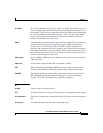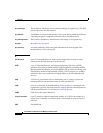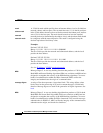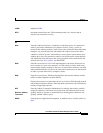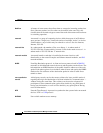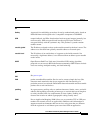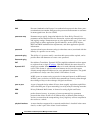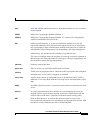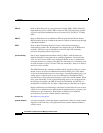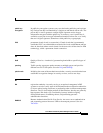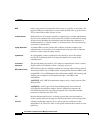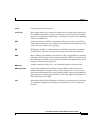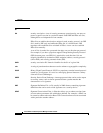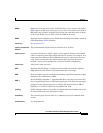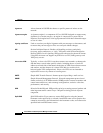
GL-27
Cisco Router and Security Device Manager 2.5 User’s Guide
OL-4015-12
Glossary
ping
An ICMP request sent between hosts to determine whether a host is accessible
on the network.
PKCS7
Public Key Cryptography Standard Number 7.
PKCS12
Public Key Cryptography Standard Number 12. A format for storing digital
certificate information. See also PEM.
PKI
public-key infrastructure. A system of certification authorities (CAs) and
registration authorities (RAs) that provides support for the use of asymmetric
key cryptography in data communication through such functions as certificate
management, archive management, key management, and token management.
Alternatively, any standard for the exchange of asymmetric keys.
This type of exchange allows the recipient of a message to trust the signature in
that message, and allows the sender of a message to encrypt it appropriately for
the intended recipient. See key management.
plaintext
Ordinary, unencrypted data.
police rate
The rate of bits per second that traffic must not exceed.
policing
Traffic policing propagates bursts. When the traffic rate reaches the configured
maximum rate, excess traffic is dropped, or remarked.
policy map
A policy map consists of configured actions to be taken on traffic. Traffic is
defined in a class map. More than one class map can be associated with a policy
map.
POP3
Post Office Protocol version 3. A protocol used to retrieve e-mail from an e-mail
server.
posture
In a NAC implementation, the condition of a host attempting access to the
network. Posture agent software running on the host communicates with the
NAD to report on the host’s compliance with the network security policy.
PPP
Point-to-Point Protocol. A protocol that provides router-to-router, and
host-to-network connections over synchronous and asynchronous circuits. PPP
has built in security mechanisms, such as CHAP and PAP.



